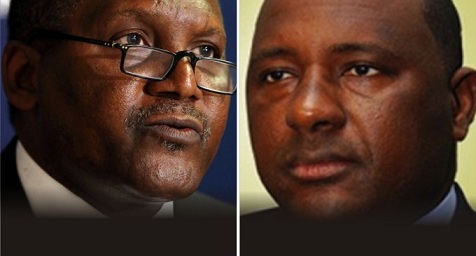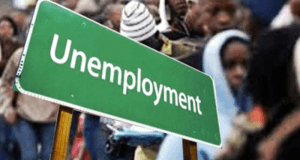Dangote Group has welcomed the challenge of BUA Group to crash the price of cement in the country, boasting that it would beat any competitor to it.
Dangote Group’s Executive Director, Project and Portfolio Management, Edwin Devakumar, made the position less than 24 hours after BUA founder and chairman, Abdulsamad Rabiu called for the liberalisation of Nigeria’s cement policy. Devakumar, said this on Wednesday on Arise Tv News ‘Morning Show’.
BUA Group’s Chairman had on Tuesday described Nigeria’s cement policy as ‘favouring the big players’ which had led to a hike in cement prices. He also linked high prices of cement to low production capacity.
Cement price in the country went above N4,000 per bag three months ago, while the current price is between N3,200 to N3,400 per bag. Rabiu said, “Look at the numbers, Nigeria is over 200 million people today in terms of population. If you look at the production of cement, last year, we were under 30 million metric tonnes. Nigeria’s 200 million people make it about 130 kilograms per head.”
Rabiu also said that during the tenure of former President Olusegun Obasanjo, he had pushed for a cement policy that would allow more players in the industry, a move which would have crashed prices. He said his company and other big industrial players were benefitting, but insisted that the country has no business with a cement price as high as N4,000. He said the big players were exploiting Nigerians, adding there were plans by the company to slash prices.
The ex-factory price of BUA is N2,700, while for Dangote, the ex-factor price is N2,450. “Today I am ready to reduce my cement and sugar prices, if other companies are ready, I challenge them,” said Rabiu. But Devakumar in his response to the challenge by the BUA boss said the company was set for the price crash.
He said “We dropped the price by almost 25 per cent in 2015, today one of the players says he wants to drop the price, he is selling as I said 10 per cent higher than my price, today my price is N2,450, they have announced their own price is N2,700. So, they can drop that price. They can drop a bit further no problem. If they drop the price, we will follow.
“If you may recall sometime in September 2015, we dropped our price by 25 per cent and at that time we were accused that we are probably trying to wipe out competition. Because of the margins record we are trying to welcome competition. “This time around I hope everybody will be happy to see a reduction in price. They have challenged that they will like to lead, we are waiting.”
According to him the recent increases in prices were linked to foreign exchange and the resulting fall in the value of Naira. “In the last three months the naira started sliding down, the bank interest rate was reduced and you also saw a big spot in the prices in the stock exchange,” he added. He said since December 2019, the company has maintained a fixed price ex-factory price, adding that “it is one way we can protect the consumer.” He said their profit margin was not huge because cement prices were high. According to him, it was due to the companies’ ability to minimise production cost.
Responding to the low production capacity, Devakumar said, capacity was not really the issue contrary to BUA’s claim. He said, “I can just say that we have four million tonnes capacity which has been kept idle for the last four years because there was no market for the Benue cement plant which we are just reactivating the standard to put them back into the market. “Capacity is really not the challenge and when it comes to pricing I saw an announcement in the same newspaper yesterday that they are selling N2,700 and they buy N2,450 from Obajana. If you talk about per capita consumption, you know it is very easy to say 150kg per person. Where were we? We were at 80kg before; 10 to 12 years back.“
He argued that the primary consumption of cement in any country was on infrastructure, but for Dangote, government’s infrastructure consumption has been low. He stated that capacity in the industry is low due to low demand for cement. He said the company began exporting clinkers because there was very low demand for cement in the country.
He said, “Our country has been struggling with massive investment in infrastructure. You can see that there has not been any major investment in the airports, ports and concrete roads. So, publicly funded infrastructure is quite low compared to most of the countries. This is one reason why it has been low.”
Dangote also denied that government policies were tailored to favour the company since the tenure of Obasanjo, saying “the policy is a very open policy, and does not endorse any particular cement company.”
Source: thewhistler.ng
 Newsfront Online …Telling the Public as it is
Newsfront Online …Telling the Public as it is




